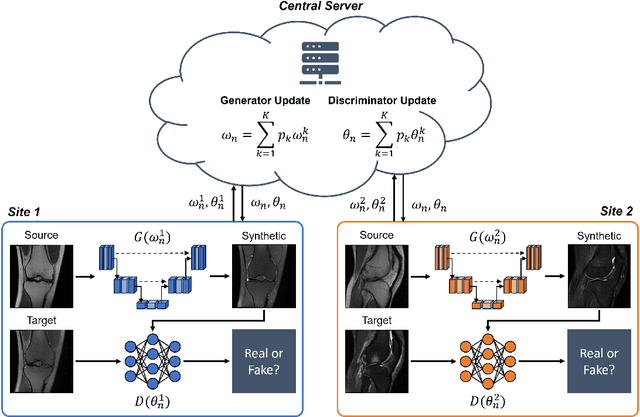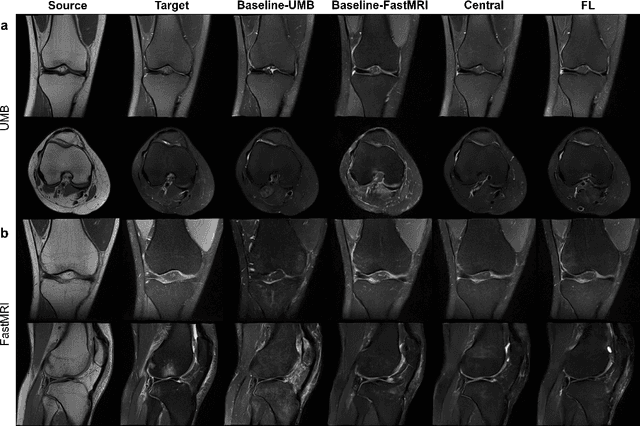Improving Multi-Center Generalizability of GAN-Based Fat Suppression using Federated Learning
Paper and Code
Apr 10, 2024

Generative Adversarial Network (GAN)-based synthesis of fat suppressed (FS) MRIs from non-FS proton density sequences has the potential to accelerate acquisition of knee MRIs. However, GANs trained on single-site data have poor generalizability to external data. We show that federated learning can improve multi-center generalizability of GANs for synthesizing FS MRIs, while facilitating privacy-preserving multi-institutional collaborations.
* 5 pages, 2 figures
 Add to Chrome
Add to Chrome Add to Firefox
Add to Firefox Add to Edge
Add to Edge